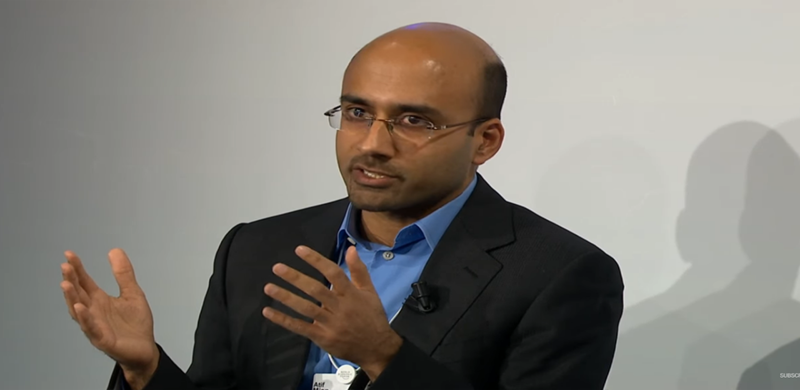
Pakistani-American economist Atif Mian has stated that a powerful or foreign entity trying to impose its will over the political affairs of a country would curtail economic growth and bring about instability in the market.
In a series of tweets, the author of House of Debt explained how a powerful group or foreign country trying to control the political happenings in a country turn out for that particular country.
Atif Mian stated that if there was a powerful group or foreign country (PG) intended to impose and maintain control over the political affairs of a country, it would ideally enter into a long-term agreement with a political party. This, he stated, would be done in a way that the PG would support the party to stay in power in return for the fulfillment of the latter’s demands.
However, such arrangements run into problems due to a lack of commitment on the political party’s part, which, once in power, would may engage in measures according to its own desire and will.
The economist was of the view that in order to keep the party on a ‘leash’, the PG would also support the party in opposition. This it would do to keep the probability of the party staying in power at 50/50.
https://twitter.com/AtifRMian/status/1191438120547426309?s=20
According to Atif Mian, this ‘50/50 strategic rule’ maximises uncertainty, because if the PG is strong, there would never be a stable government. The political instability in the country keeps long-term investment at bay, and economic growth is hence curtailed.
In a series of tweets, the author of House of Debt explained how a powerful group or foreign country trying to control the political happenings in a country turn out for that particular country.
Atif Mian stated that if there was a powerful group or foreign country (PG) intended to impose and maintain control over the political affairs of a country, it would ideally enter into a long-term agreement with a political party. This, he stated, would be done in a way that the PG would support the party to stay in power in return for the fulfillment of the latter’s demands.
However, such arrangements run into problems due to a lack of commitment on the political party’s part, which, once in power, would may engage in measures according to its own desire and will.
The economist was of the view that in order to keep the party on a ‘leash’, the PG would also support the party in opposition. This it would do to keep the probability of the party staying in power at 50/50.
https://twitter.com/AtifRMian/status/1191438120547426309?s=20
According to Atif Mian, this ‘50/50 strategic rule’ maximises uncertainty, because if the PG is strong, there would never be a stable government. The political instability in the country keeps long-term investment at bay, and economic growth is hence curtailed.
